Armchair Warriors

The latest edition of this work has been brought to publication with the generous assistance of Marguerite and Gerry Lenfest.
Naval Institute Press
291 Wood Road
Annapolis, MD 21402
2008 by the United States Naval Institute
All rights reserved. No part of this book may be reproduced or utilized in any form or by any means, electronic or mechanical, including photocopying and recording, or by any information storage and retrieval system, without permission in writing from the publisher.
ISBN 978-1-61251-577-9 (eBook)
The Library of Congress has cataloged the hardcover edition as follows:
Davidson, Joel R. (Joel Robert), 1959
Armchair warriors : private citizens, popular press, and the rise of American power / Joel R. Davidson
p. cm.
Includes bibliographical references and index.
1. WarPress coverageUnited StatesHistory20th century. 2. WarPress coverageUnited StatesHistory19th century. 3. Letters to the editorUnited States. I. Title.
PN4888.W37D38 2008
070.44935502dc22
2008015591
 Print editions meet the requirements of ANSI/NISO z39.48-1992 (Permanence of Paper).
Print editions meet the requirements of ANSI/NISO z39.48-1992 (Permanence of Paper).
15 14 13 12 11 10 9 8 9 8 7 6 5 4 3 2 1
First printing
All photos are from the National Archives and Records Administrations Army, Navy, Air Force, and Coast Guard still pictures collections.
To my daughter Natalie, with love.
May she grow to see a world
where only historians think about war.
Contents
I am indebted to a number of individuals and organizations for their assistance on this project. My research was only possible with help from the staff of the National Archives, especially archivists Wil Mahoney, Mitch Yockelson, and Barry Zerby. I am also grateful to archivists at the Harry S. Truman and Lyndon Baines Johnson presidential libraries, as well as to the staff of the Library of Congress. Several accomplished historians gave me invaluable advice and encouragement. My thanks go out to Jeff Clarke of the Army Center of Military History, Professor Alex Roland of Duke University, and Bob Schneller of the Naval Historical Center. Finally, regards to Rick Russell of the Naval Institute Press for his early and steadfast support.
M ore than most nations, the United States draws strength from the free exchange of ideas and the empowerment of individual citizens. In the American ideal, free speech and an unfettered press facilitate public discourse, while allowing superior ideas to percolate up through the citizenry and gain widespread acceptance. War demands the opposite approach: free will is overborne, individuals sacrificed, and decisionsoften made in secretflow from the top down without debate.
The American public has generally experienced the nations wars secondhand, with little direct input on their conduct. Military service has been the exception rather than the rule. Even in World War II only one in ten wore a uniform. Individuals paid taxes, worked in factories, voted, and sometimes protested or rioted, but such expressions of support or disapproval only indirectly influenced how wars were fought. For more than a century, the conduct of warfare (though not the actual fighting and dying) has remained the province of expertsprofessionals educated by service academies and entrusted with carrying out national military policy. Yet ordinary citizens have felt free, sometimes even compelled, to offer their advice on Americas military endeavors.
Most Americans relied on the press to make sense of what war really was. Popular media sources shaped public perceptions regarding military issues. Articles and editorials celebrated the countrys successes in war, but also explained its setbacks, as well as the perils and opportunities that lay ahead. Despite their isolation from the actual fighting of wars, many Americans took the information provided by news accounts and attempted to play an active role in guiding the nations military efforts. Often encouraged by media outlets, these citizens formulated a wealth of proposals aimed at solving particular tactical or strategic problems, and submitted their ideas directly to policy makers. Media accounts of military challenges together with the pragmatic suggestions they inspired together constitute an unexamined national dialogue about one of the most important aspects of U.S. history: the use of force for national survival. The articles and letters in this book are part of Americas social, intellectual, and military life, reflecting an interest in the practicalities of waging war that belies images of a supine public passively following events.
The conversations examined herein had historical antecedents. From the earliest days of the republic, citizens felt at liberty to offer advice regarding military issues. George Washington received a suggestion during the siege of Boston that he place his artillery at the harbor mouth to prevent British ships from entering.
This phenomenon continued during the sixty years or so from the emergence of the United States as a world power through the early Cold Warthe period covered in this book. During these years, American military activities spanned the globe. Coupled with the accelerating pace of technological change, this created a remarkably broad set of military problems. The press brought these issues before the public, and ordinary Americans responded with innovative proposals on a wide range of topics. These suggestions reflect the key military issues as the public saw them, forming the best available snapshot of popular conceptions regarding warfare.
The suggestions from average Americans provide a unique window into the minds of patriotic citizens grappling with issues ranging from grand strategy to individual combat. These letters, laid alongside extracts from the popular press, suggest the ways that publications both informed and motivated the public to think about war. Few of the letters reveal explicit links between news articles and the ideas proffered, but the relation is clear. The issues covered were important, the press treated them as such, and these Americans believed their solutions were valuable enough to place before the authorities.
The writers themselves are representative of America. They range across the spectrum of society, from famous scientists to semiliterate laborers, from socialites and senators to prison inmates. The letters include various shades of public opinion on war, from outright imperialism to extreme pacifism. Their authors shared a high level of creativity, a willingness to devote their energies to furthering national military goals, and a belief that the man on the street could apply common sense to solve even the most intractable military problems. The press often encouraged this belief by distilling complex issues down to a level that the ordinary reader could understand and by actively encouraging private citizens to find solutions that had eluded the experts. This anti-intellectual or antielitist approach to governance found support in the uniquely American values of equality and individualism, keys to democratic society. Thus, the same ideals the nation fought to protect also produced the wealth of ideas about how to win the fight.
Next page

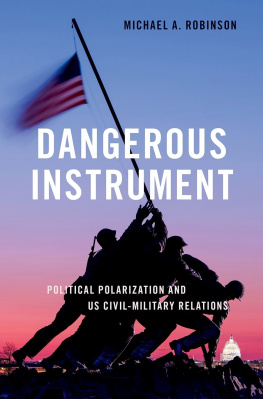
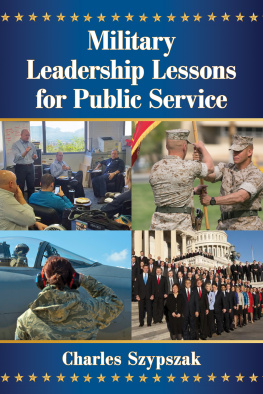
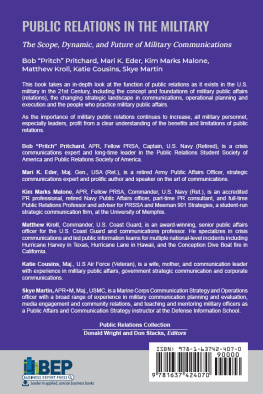
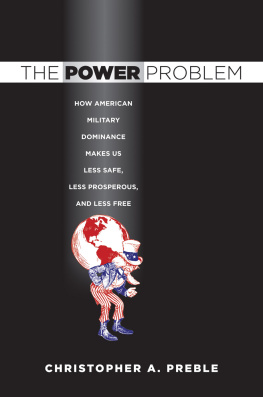
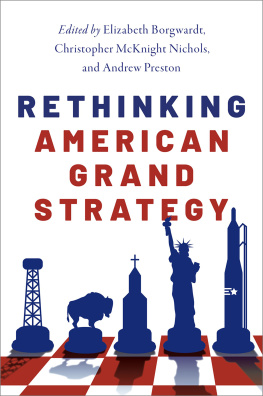
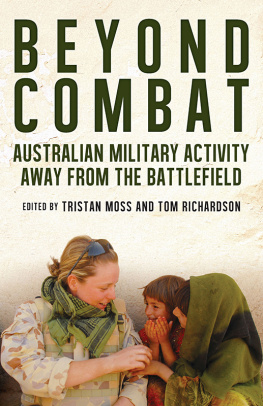

 Print editions meet the requirements of ANSI/NISO z39.48-1992 (Permanence of Paper).
Print editions meet the requirements of ANSI/NISO z39.48-1992 (Permanence of Paper).